The number of contestants and audiences at large, long-standing beauty pageants such as Miss Universe, Miss America (USA), and Miss Hong Kong decreases every year.
After the girl who won Miss USA 2024 gave up her title in May, many beauty sites analyzed the decline of beauty pageants. NPR has an interview with Amy Argetsinger - editor of The Washington Post - with the theme: "Is this the beginning of the end of beauty pageants?".
"These playgrounds have lost the appeal they had in the 1990s. What led to this situation? Is it because of poor quality or because the organizers cannot maintain the standards they once had, when beauty queens were considered to represent the beauty of a country?", FirstPost ask questions
In the US and Europe, beauty pageants, big and small, are losing their appeal. According to Forbes, Miss America (first held in 1921) was once considered a “must-see” show. In 1954, the finals were watched by 27 million people – even though not every household had a television at the time. By 2017, the show had a viewership of just 5.6 million.
In 1984, Miss Universe attracted 35 million viewers in the US, by 2023, only 819,000 viewers were between the ages of 18-49 and 301,000 viewers were between the ages of 18-34, according to Nielsen . Miss World is not broadcast on prime time in the UK - where the organization is headquartered.
India is considered a beauty pageant powerhouse, with six Miss World titles and three Miss Universe titles. But Hindustan Times Indian commentators say they are not as enthusiastic about beauty queens as they were when Sushmita Sen and Aishwarya Rai were crowned Miss Universe and Miss World, respectively, in 1994.

Hong Kong used to be a thriving beauty pageant region, with competitive competitions such as Miss Hong Kong, Miss Asia, and Miss Chinese International Pageant. However, currently only Miss Hong Kong is held annually, Miss Chinese International Pageant has stopped operating since 2019, and Miss Asia has been held erratically.
According to The Paper, Although still in existence, Miss Hong Kong has lost much of its appeal compared to its peak in the 1980s and 1990s. At that time, each contest attracted thousands of contestants, but in recent years, only over 100 people registered to participate, with controversial quality.
The rise of feminism and the development of the #MeToo movement have changed public perception of beauty pageants. Many people believe that beauty pageants are outdated and follow beauty stereotypes set by businessmen. Instead of portraying independent, talented, and creative women, most organizers only focus on promoting physical appearance. Experts say that beauty pageants create a negative view of women and that getting the public used to the pleasure of seeing women’s bodies indirectly reinforces the ideology of male chauvinism.
In the past, there were not many opportunities for women, they relied on beauty to attract attention and change their destiny. Most of the beauty pageant contestants today are educated and have professional qualifications. They have more and more choices and opportunities to change their lives. In Hong Kong, in addition to beauty pageants, women now have many stages to express themselves. Therefore, "in the flow of history, it is understandable that Miss Hong Kong is no longer interested," Chinese social commentator Leung Hong Dat commented on Liaoning TV.
According to New Weekly In China, over the past 10 years, no prominent entertainment stars have emerged from beauty pageants in China. "The nature of beauty pageants has gradually shifted to commercial forms, so it is not difficult to understand why beauty pageants are gradually losing attention."
Miss Universe was founded by Pacific Knitting Mills, a company that specialized in clothing and accessories. The growth and influence of the contest turned them into a large corporation. In 1951, when Yolande Betbeze was crowned Miss America, she demonstrated her feminist ideology by refusing to wear a swimsuit for a photo shoot with her sponsors.
Nowadays, contestants still have to constantly wear sponsors' clothes, take promotional photos with many brands and labels in side activities. Professor Lee Young Ja of the Catholic University of Korea analyzes the nature of beauty contests as business, aiming to bring more profits to the organizers. She calls it "exploitation through the commercialization of women".
Many beauty contests are degraded and involved in scandals. In April, Miss USA Noelia Voigt, 24, and Miss Teen USA UmaSofia Srivastava, 17, simultaneously return the crown After eight months in office, UmaSofia Srivastava announced her resignation because she felt her "personal values no longer aligned with the organization's direction."
Fans believe there is a hidden agenda behind the two beauty queens' incident. In Noelia Voigt's post, fans discovered that if you combine the capital letters in the first 11 sentences, the message "I am Silenced" appears.

Before Noelia Voigt returned her crown, Miss USA communications director Claudia Michelle also announced her resignation, citing a toxic work environment and the organization's financial struggles.
In 2023, a Miss Universe Indonesia contestant was accused of being peeped at during the anthropometric test. The Miss Grand International 2022 organizers were accused of exploiting contestants, leaving them exhausted due to their busy schedules. Miss Venezuela 2018 was also suspended because contestants denounced each other. "sell out"
According to Hindustan Times, When the British and Americans were no longer interested in Miss World and Miss Universe, these organizations brought the contest to new markets in Asia, Africa, and Latin America.
Beauty pageants once opened a way out of poverty in Venezuela, which is known as the "homeland of beauty queens" with six Miss World titles and nine Miss Universe titles. In a country with high inflation and widespread hunger, many girls consider beauty pageants as a "ticket" to emigrate and change their lives. However, according to AP, Beauty pageants in Venezuela are getting harder to come by, as investors tighten their belts due to economic difficulties.
In her 2015 memoir, Miss Venezuela contestant Patricia Velasquez wrote that she had sex with an older man to pay for her rent in Caracas, her breast implants, and her pageant dresses. “Not everyone has to go to that extent, but that was my reality,” she wrote.
Amy Argetsinger, lifestyle editor of The Washington Post and author of a book about beauty queens, said in an interview with NPR in May: "The viewership of these shows on television has been declining for the last 20 years. But there are all sorts of small beauty pageants that you've never heard of that continue to exist out there. It's possible that the big ones like Miss America and Miss USA can continue to operate in the same way."

Source








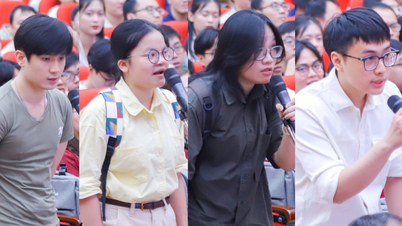

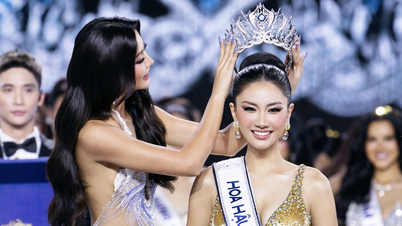

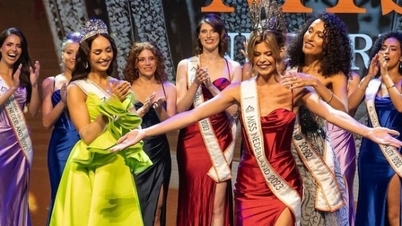
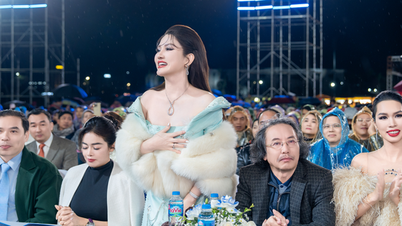


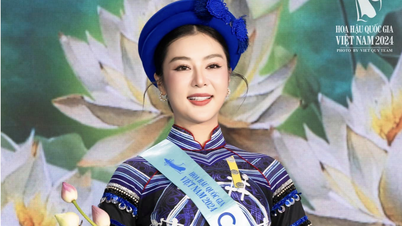

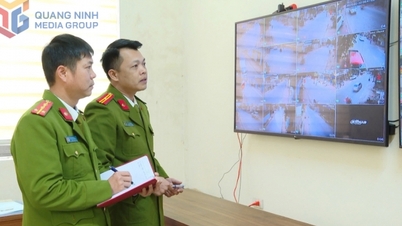
















![[Photo] Parade to celebrate the 50th anniversary of Laos' National Day](/_next/image?url=https%3A%2F%2Fvphoto.vietnam.vn%2Fthumb%2F1200x675%2Fvietnam%2Fresource%2FIMAGE%2F2025%2F12%2F02%2F1764691918289_ndo_br_0-jpg.webp&w=3840&q=75)
![[Photo] Worshiping the Tuyet Son statue - a nearly 400-year-old treasure at Keo Pagoda](/_next/image?url=https%3A%2F%2Fvphoto.vietnam.vn%2Fthumb%2F1200x675%2Fvietnam%2Fresource%2FIMAGE%2F2025%2F12%2F02%2F1764679323086_ndo_br_tempimageomw0hi-4884-jpg.webp&w=3840&q=75)















































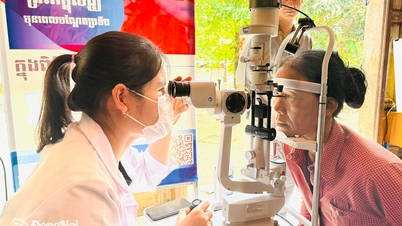























Comment (0)